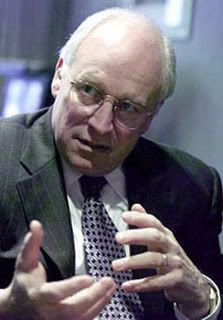Will he be able to keep his job? Or is he already finished? Al-Maliki makes connections with Iran and Turkey:
TEHRAN, Iran (AP) -- Iraqi Prime Minister Nouri al-Maliki met with officials in Iran on Wednesday to seek help in reining in violence in his country, reaching out to a nation the U.S. accuses of fueling Iraq's turmoil by backing Shiite militants.
It was al-Maliki's second visit to Tehran in less than a year, coming days after U.S. and Iranian experts held talks in Baghdad on improving Iraq's security.
Al-Maliki and the Shiite and Kurdish parties that dominate his government are closely linked to predominantly Shiite Iran, and he has struggled to balance those ties with the United States, Tehran's top rival in the region.
The U.S. has recently stepped up its allegations that Iran is arming Shiite militiamen, but the Iraqi government has taken a low-key stance without outright backing the American claims, which Tehran denies. One al-Maliki adviser, Sami al-Askari, said last month that the government "doesn't rule out" Iranian arming of militants.
[snip]
Before arriving in Iran, al-Maliki traveled to Turkey and agreed to root out a Kurdish rebel group operating from northern Iraq. But he said the Iraqi parliament would have the final say on efforts to halt the guerrillas' cross-border attacks into Turkey. Iran also faces problems with its Kurdish minority near the Iraqi border. Turkey has threatened to stage an incursion into northern Iraq unless Iraq or the United States cracks down on rebels from the separatist Kurdistan Workers Party, or PKK, that have set up bases there. The envisaged counterterrorism agreement is aimed at forcing Iraq to officially commit itself to fighting the rebels.
Iraq, which like Iran is majority Shiite, has managed a difficult balancing act between Tehran and Washington since the U.S.-led invasion in 2003, trying to maintain good relations with its powerful neighbor while not angering the Americans.
The U.S. has accused Iran of providing money and weapons to Shiite militias in Iraq. Iran denies the charges and argues that the presence of U.S. troops is destabilizing the region.
Washington and Tehran have held three rounds of talks on Iraqi security since May, and al-Maliki told AP he would push for these talks to continue at an ambassador level.
Looks like he's making every attempt to keep Iraq together but then:
... Iraqi Prime Minister Nuri al-Maliki - whose days in office are surely numbered - might want to to be remembered as the man who brought democracy and justice to Iraqis; the man who rooted out terrorism and killed al-Qaeda leader Abu Musab al-Zarqawi.
Instead, Iraqis will remember Maliki as a selfish, sectarian politician who divided the country as never before, between Shi'ites and Sunnis. They will remember the death squads that flourished under his regime, the targeted assassinations of Sunni notables, and they will see him as a stooge of the Americans who was unable to fulfill any of the promises he made when coming to power in May 2006.
Maliki's problem is that his government is not constitutional, as his cabinet no longer represents all parties that are seated in Parliament. Thirteen out of 37 ministers have walked out, and more are likely to follow soon.
The first to abandon him were six Shi'ite ministers from the Sadrist bloc in April. They objected to his relationship with the United States, and his failure to secure a timetable for US troop withdrawal from Iraq. They were followed by Sunni Justice Minister Hashem al-Shibli from the Iraqi List that is headed by former prime minister Iyad Allawi.
This week, five Sunni ministers from the Iraqi Accordance Front stepped down, along with Sunni Salam al-Zoubai, who was deputy prime minister. They claimed this was because Maliki had not responded to any of the 11 demands they had made, which included greater decision-making for Sunnis, and a political amnesty for Sunni prisoners.
Then came the resignation of nine senior officers from the Iraqi Army, including Baker Zebari, the commander-in-chief. All of them were objecting to how the prime minister is running affairs.
After discussing the politicians who are jockeying for position to take al-Maliki's seat, the writer of this article, Sami Moubayed (a Syrian political analyst) goes on to say:
The pro-US Arab states have been very blunt in opposing Maliki, because of his relations with Iran and his well-known animosity toward Sunnis. Recently, they turned down an offer by US Secretary of State Condoleezza Rice to support the Maliki cabinet. [snip]
One cannot help but recall Maliki's first speech to the Iraqi people, broadcast in April 2006 when he was still prime minister-designate. He said, "Our Sunni brothers, by their participation in a broad alliance, have begun to carry responsibilities in the political process ... which will dry up the sources of terrorism. Fighting the insurgency will be my government's priority." He said he hoped to do so by creating "a white front" of Sunnis, Shi'ites and Kurds and that he would create a non-sectarian government to ward off accusations made by observers claiming that he was "too Shi'ite".
Maliki then addressed the Sunnis directly by playing down fears that Iran was interfering in Iraqi affairs. He thanked neighboring countries such as Iran for sheltering the Iraqi opposition during Saddam's era, saying, "But this does not mean any country can meddle in our affairs." Gratitude did not mean security interference, he added. Earlier, Maliki had said, "The weapons must be in the hands of the state. Their presence in the hands of others [militias] will be the start of problems that will trigger a civil war."
Rather than collect arms and root out militias, Maliki did the exact opposite. He will leave office amid a civil war - a very ugly one - that is largely due to his own doing.
The more Bush demands the 'Iraqi government' do something, the more it unravels. Heckovajob, Georgie!


